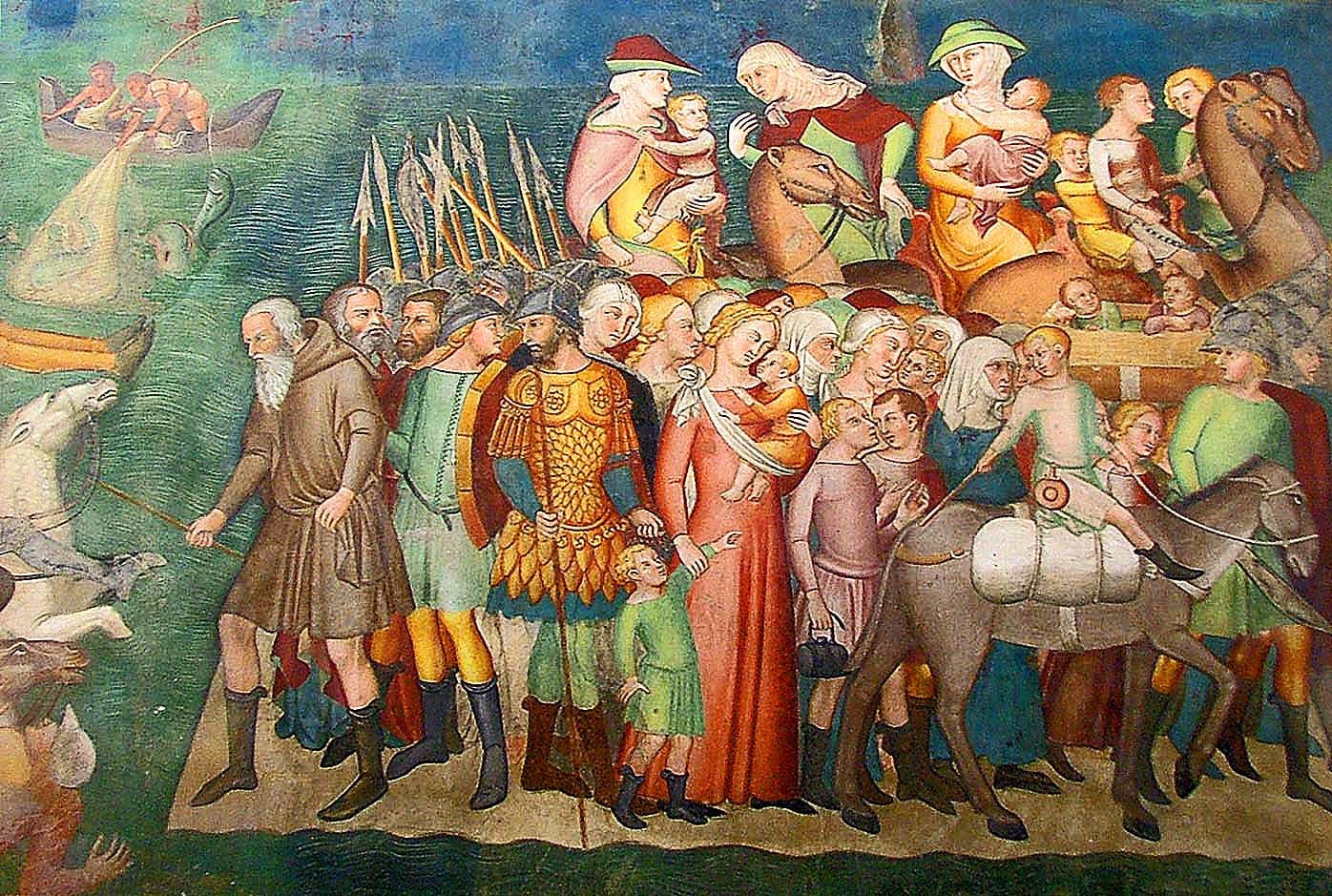The story gets bigger for the Easter Vigil.
Two times in the last seven days, we have recounted the narrative of Christ’s passion and death without context. We read the lines, we each play our part in a drama that is supposed to help us make a visceral connection to the reality of Christ’s suffering and death. Two times in the last seven days, we have focused on the salvific mechanism that is the self-offering of Christ—how it happened, who was involved, and when.
Tonight, the story gets bigger—we focus on the ‘why’ of Christ’s passion and death. Tonight, the story develops into a narrative that is cosmic in scope. Tonight, the story of our salvation gets bigger: we go back to the beginning, to the origin life and death, and work our way forward in time tracing out the pattern of divine love that is revealed to patriarchs and prophets and kings. You should leave the Basilica tonight with a vision of what God has done in time. You should see the connections between the saving events of the Old Testament and the death and Resurrection of Christ.
But you should also see the connections between Christ, the saving events of the Old Testament, and your life.
Tonight, as we celebrate an ancient liturgy, there is a goodness to be found in wisdom and the insight of those first Christians who professed faith in Christ Jesus. The Jesuit Father Jean Danielou explains that:
For the fact is that the life of ancient Christianity was centered around worship. And worship was not considered to be a collection of rites meant to sanctify secular life. The sacraments were thought of as the essential events of Christian existence, and of existence itself, as being the prolongation of the great works of God in the Old Testament and the New. In them was inaugurated a new creation which introduced the Christian even now into the Kingdom of God.
What does he mean? Father Danielou means that there is a difference between an event-in-history and a ritual that sanctifies. Your baptism is more than a means of your sanctification—it is an event-in-history as real and as meaningful as Abraham’s sacrifice of Isaac. The Eucharist you will receive tonight is more than a way for you to become holy and connected to God—it is an event-in-history as real and as meaningful as the Exodus of the Israelites from Egypt.
We need to think bigger, see bigger, believe bigger—because of Christ.
The saving work of God continues, and the story of our salvation is not complete. Tonight, the story of our salvation gets bigger—but not only because we go back to the beginning, to the origin of life and death. Tonight, the story of our salvation gets bigger because you are here, tonight, to receive a sacrament, the very meaning of your existence, an event-in-history that reveals the pattern of divine love revealed to patriarchs and prophets and kings—and to you. Tonight, the story of our salvation gets bigger because God loves you.
Homily preached on March 30th, 2024 at the Basilica of the National Shrine of the Assumption of the Blessed Virgin Mary




